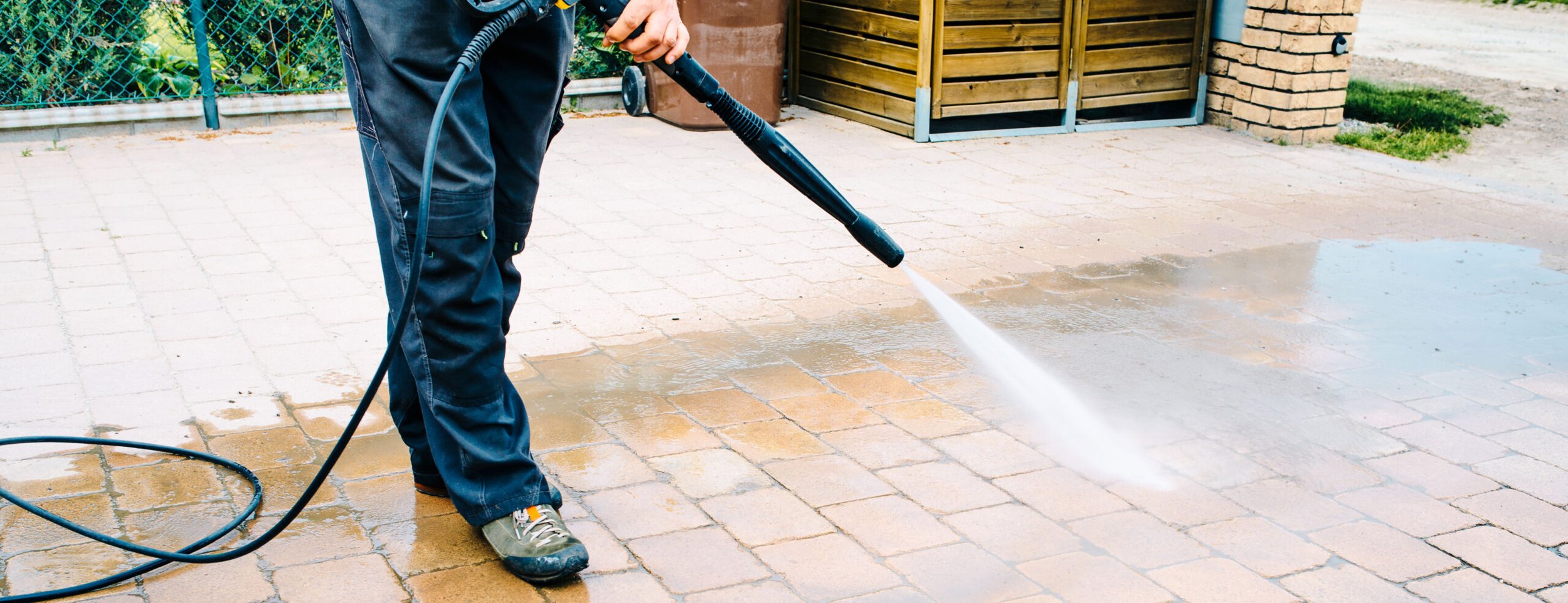
Home Improvement
People caring for their homes can unknowingly impact local waterways through the improper handling and disposal of home improvement materials, stockpiles, debris, chemicals, paint, and trash. Materials swept, raked, or spilled on the ground or pavement can be carried by rain, residential water, or wind into our local creeks. Rinse water should never be discharged to a street, gutter, or storm drain.
Products labeled “nontoxic” and “biodegradable” can still harm wildlife if they enter the storm drain system. These products are prohibited discharges to the storm drain system.
HOW ARE THE STORM DRAIN AND SANITARY SEWER SYSTEMS DIFFERENT?
The storm drain system transports rainwater to local creeks, rivers, and the ocean. This system was created to prevent flooding within communities and homes.
All water and materials that enter the storm drain system are untreated.
The sanitary sewer is a plumbed system that transports used water from buildings to a wastewater collection and treatment facility, where the water and sewage is treated.
If you see an outdoor drain and are unsure of its use, assume it is a storm drain and do not discharge wash water to it.
Clean creeks are important. They provide vital fish habitat, recreation, and add to the beauty of our city.
JOB PREPARATION
Check the weather; Avoid work outdoors if rain or high wind is forecasted.
Be prepared. Have materials on hand to contain spills. This may include materials such as a squeegee; dustpan; large bucket; rag; storm drain inlet protection; wet/dry vac to collect the runoff from rinsing down any spill area.
Place a tarp under equipment and materials for easier clean-up of any spilled material.
YARD WASTE AND LANDSCAPING MATERIALS
See “Yard Care” Handout for more information.
BARBEQUES
Put burnt food residue into the garbage.
Avoid cleaning off grills on paved areas.
POWER WASHING
When Power Washing any surface, refer to the “Power Washer Guidelines” document and/or your local municipality for requirements and regulatory compliance.
Always pre-clean the area to be power washed by sweeping up litter, dirt, and other debris before power washing.
Use rags or an absorbent material, like kitty litter, to remove any oil, grease, or other petroleum products leaked or staining outdoor areas. These must be disposed of as hazardous waste. Contact your local County administered Household Hazardous Waste program or collection facility for more information and locations.
Discharging power washing wastewater to a landscaped area may be allowed if no soaps are used and you have checked the slope and area to be sure you will avoid runoff into a street or gutter.
Dispose of wash water by collecting the wash water and dumping it into the sanitary sewer through a sink, toilet or sewer clean-out. If hazardous materials (petroleum products, fuels, antifreeze, solvents, and pesticides) are involved, the water will need to be disposed of as hazardous waste and cannot be discharged to the sanitary sewer.
Use a wet/dry vacuum or a sump pump to collect wastewater.
PAINTING
Choose water-based products, paint or stain, over oil-based when possible.
Water-based paints, brushes, rollers, and spray equipment can be cleaned in a bucket or sink and discharged to the sanitary sewer.
See “Painting Projects” Handout for more information.
CONCRETE AND MASONRY WORK
Contain all water and materials used.
Only mix up as much concrete as needed.
Place excess concrete into a dirt area (preferably lined with tarp or Visqueen) or into a container to allow material to dry before putting it into the trash.
Promptly recycle or dispose of debris and wastes in accordance with federal, state, or local regulations.
CLEAN UP
Clean up spills immediately.
Cover and protect unused, materials.
Never hose work areas into a street, gutter, or storm drain.
Sweep up loose materials and place them in the trash.
Place home improvement waste, such as sheetrock mud, tile and countertop cuttings in the trash bin.
Releasing pollutants into the storm drain system or a waterway is prohibited by local ordinance, state, and federal law.
FOR AN EMERGENCY OR A SPILL INVOLVING HAZARDOUS MATERIALS OR HAZARDOUS WASTE CALL 911 OR YOUR LOCAL FIRE DEPARTMENT.
FOR ALL NON-EMERGENCY / NON-HAZARDOUS SPILLS
To report a Non-Hazardous spill, or for other useful phone numbers, see Spill Numbers informational reference sheet for your local agency contact information or visit: www.streetstocreeks.org/spill-numbers/.
